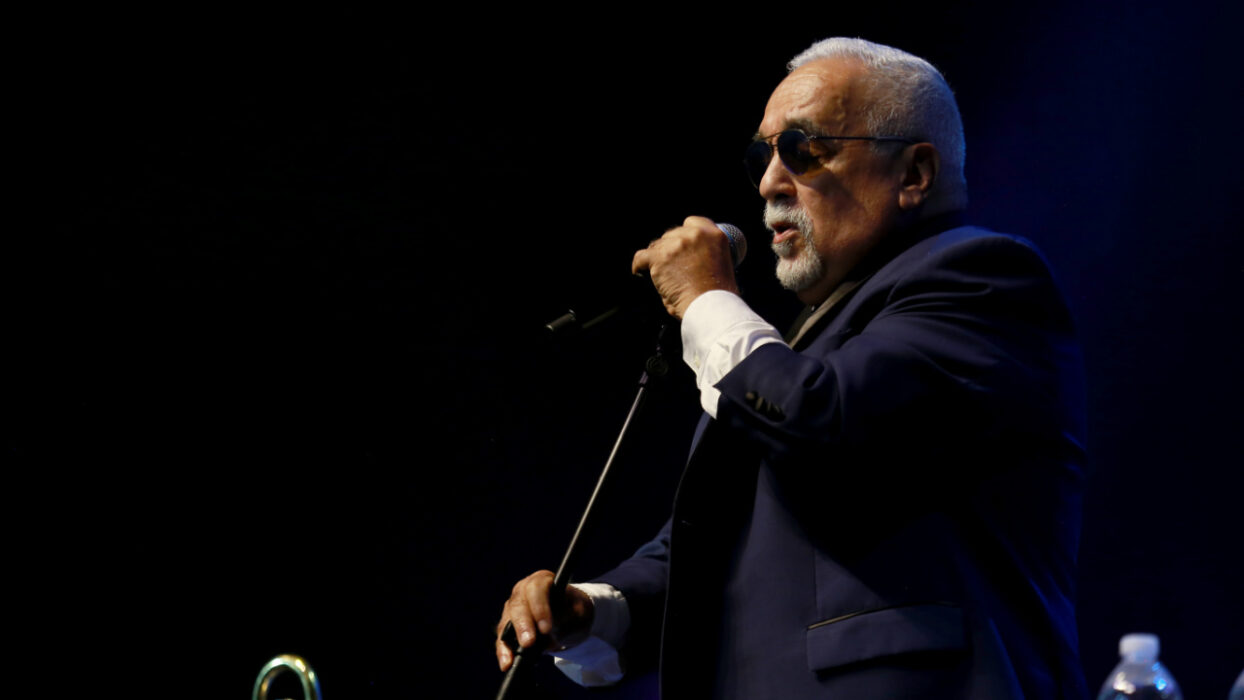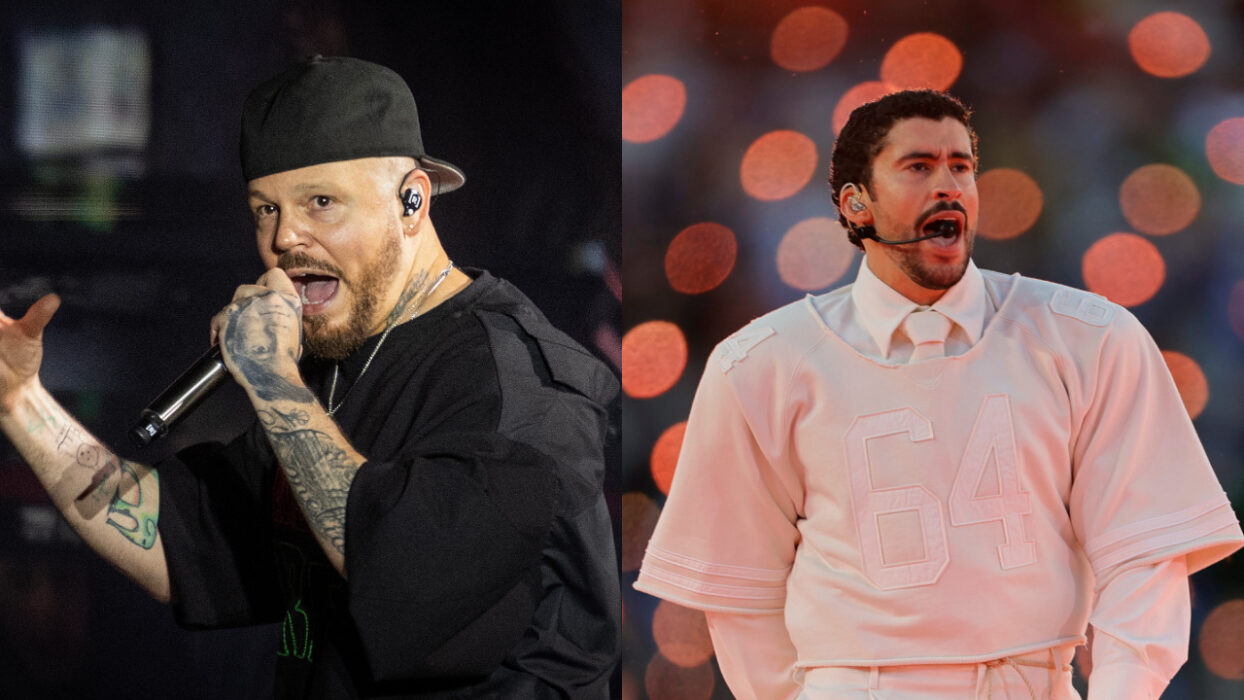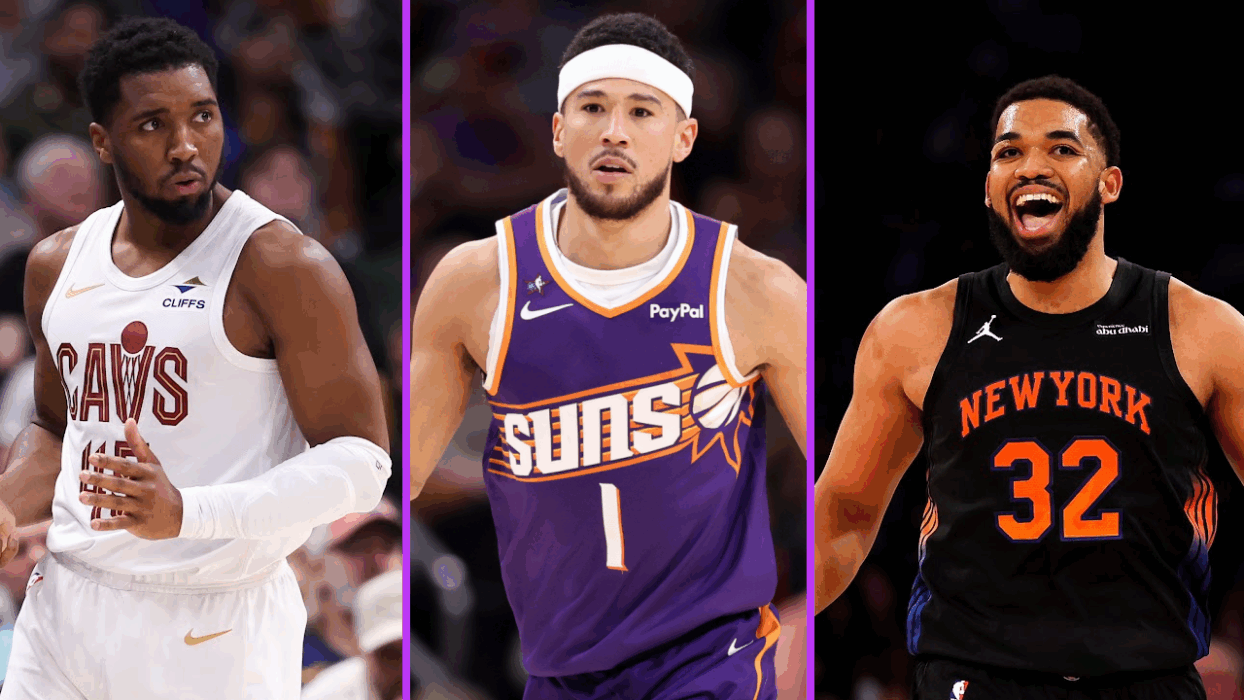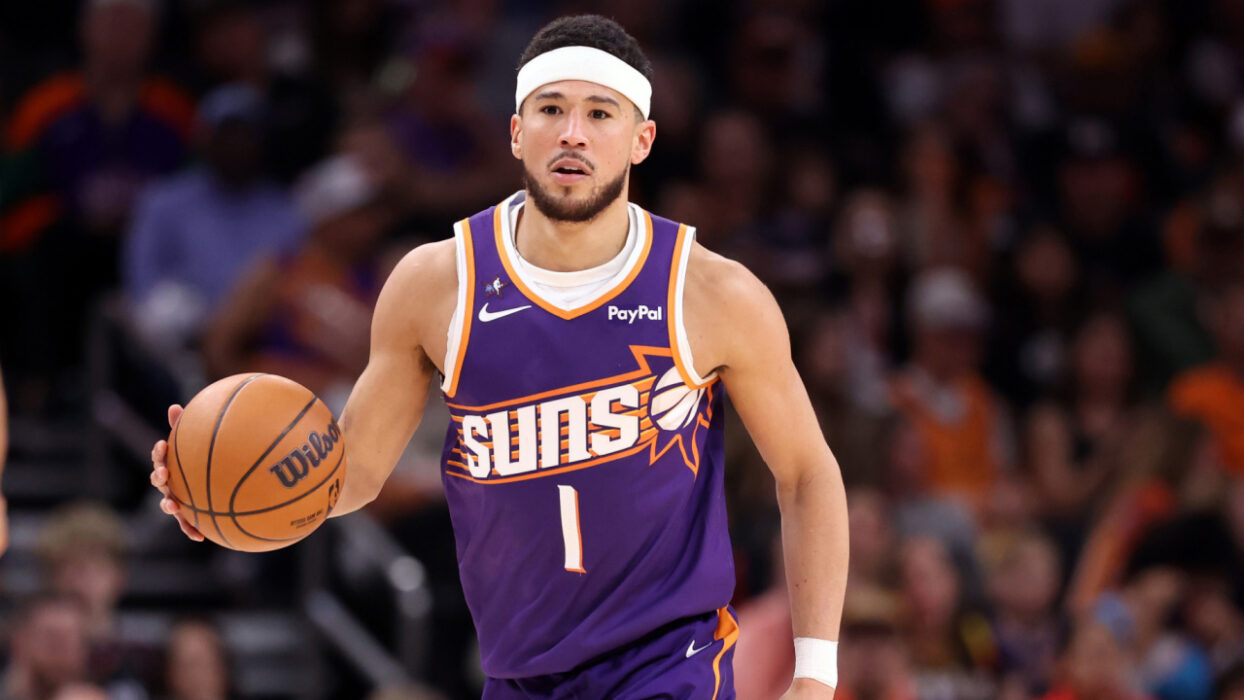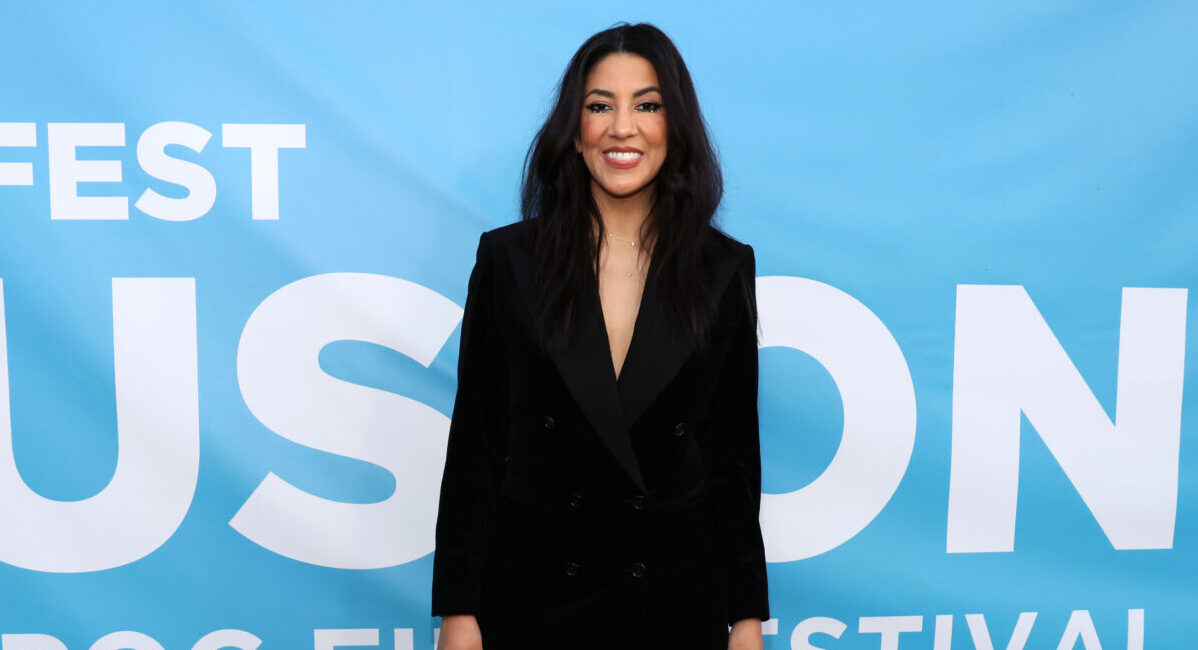
‘Encanto’s’ Stephanie Beatriz Partners With McDonald’s To Mentor Lucky Latinx Filmmakers, 3 Winners To Receive $75K
Although Stephanie Beatriz may be best known for playing no-nonsense detective Rosa Diaz on Brooklyn Nine-Nine and voicing Mirabel Madrigal in “Encanto,” the Argentine American actress is also an advocate for women’s rights, LGBTQ+ rights and marginalized communities.
Most recently, Beatriz has partnered with McDonald’s to launch Spotlight Dorado, a new platform aimed at highlighting Latino voices in film and increasing Latino representation in the industry, which currently makes up only 1%. This statistic is alarmingly low, considering that Latinos represent almost 20% of the U.S. population. Spotlight Dorado kicked off by having a short film contest, where three finalists have been chosen to receive $75,000 in funding to bring their stories to life.
After their films are made, the public will have a chance to vote for the grand prize winner. The grand prize? A year-long mentorship with industry leaders and an opportunity to work with McDonald’s on future creative endeavors. Obviously, we are lovin’ it.
Beatriz is only one of many mentors who will help coach the winner to success, along with others such as director Carlos López Estrada and writer Nancy C. Mejía, supporting McDonald’s long history of championing voices in the Latino community.
mitú was fortunate enough to chat with Beatriz about how this project came to be, why representation is so important, and where to start if you have a great story of your own to tell.
Tell us a little bit more about Spotlight Dorado. What inspired it and what has the process been like so far?
Spotlight Dorado is essentially uplifting the next generation of Latino filmmakers and giving them an opportunity that they sometimes don’t get, which is to make their cinematic dreams come true. I’m really thrilled to be a part of this program because it just feels like it’s a driving change in an industry that does need more representation.
We know we have made progress in the entertainment industry, there’s no denying it ’cause we’re having this conversation right now, but there’s still a lot more to do. I mean, we are 20% of the U.S. population and we make up less than 1% of the stories told by Hollywood. I just knew that it was a no brainer when McDonald’s came to me with this. I was like, “I have to be involved! How can I be involved?” And I wanted to be hands on, which I think is a really special thing about this program.
We’re really doing something very different. Not only are you awarding these finalists $75,000 each to create these short films, but they also receive one-on-one mentorship from people in the industry like myself. All of us have already started our careers and are progressing in the film and entertainment industry, so we’ll be there to answer questions and to give them guidance in any way, shape, or form that we can because many of us were alone on that journey.
On top of that, one of the finalists will be chosen as the grand prize winner and will have a professional opportunity with McDonald’s as well. So, it’s really supporting filmmaking and filmmakers on multiple levels to help them continue to ascend in their careers.
In your role as a mentor, what do you hope to instill in these up-and-coming Latinx filmmakers?
There have been many lessons that I’ve had to learn over the course of my career. I started out in theater, and then I moved to television and film, and both of those things have a lot of similarities and a lot of differences. One of the things that I’ve learned over and over is that it pays to have a support system, to ask questions and to show up and do the hard work.
I think [these filmmakers] are going to get that experience hands on by being in the midst of producing their films, but I also want them to know that they have people who are there to support them, because it can feel really isolating sometimes to be an artist. The thing that you forget oftentimes is there’s a whole network of people, many of them working on the same project that you’re working on, that want you to succeed. So, that’s something that I’m really excited to share in little ways and big ways with all three of the finalists.
I’ve had some really great mentors in my career, a lot of them theater actresses and particularly older actresses, that had already gone through all the phases of their careers that I was going through. And many of them gave me a ton of great guidance. A lot of it was about not letting your fears overcome your possibilities, and sometimes, it was just simple things.
You know, sometimes you’re having a conversation with a mentor or even a friend, and they just say something to you that clicks. But it’s because you had access to that conversation, and you were able to be honest and vulnerable about something that means so much to you, and so, you learned something that stuck with you forever.
One of my favorite memories is working with Vilma Silva, who is a Latina actress, at the Oregon Shakespeare Festival. I’ll never forget when I expressed nervousness about auditioning for some of the leads at the Shakespeare Festival, and she said, “Well, why wouldn’t you be a lead? Shakespeare is for you, it’s for all of us,” and it was the first time that I’d ever heard an older, Latina actress tell me that I absolutely could do Shakespeare.
She asked me, “Why not you?” And I’ve applied that so many times in my career moving forward, “Why not me?” So, that’s the kind of stuff that I’m really hoping to share with these filmmakers when we have those nitty gritty, real conversations as they move through this process.
What was it about the three finalists’ stories that made them so compelling?
As you read over the synopses of each film, all of them are really different and that’s one of the things that I think is really important to remind people of: Latinos are not a monolith, there’s so many different types of us. I’m going to quote Clayton Davis, who is one of my favorite writers and a Latino, and he wrote, “Latinos are not culturally ambiguous. Latinos are 500 million people that span the globe. Learn about us.” And that’s what really stuck out to me about these filmmakers, that each of them had a very distinct voice. [Latinos] have lots of different voices, with so many different things to say, and I think that’s exactly what you’re going to see as these filmmakers start to bring their stories to life.
Why do you think representation matters so much?
Well, if you can’t see it, you can’t be it. I can’t remember where that quote is from, but another version of that is from one of my favorite musicals, “Rocky Horror Picture Show”, which is, “Don’t dream it, be it.” And I think for many of us as human beings, we’re on this journey of being alive on the planet, and we’re looking around, going, “Am I all alone? Am I the only one that feels this way, that is this way?” And art is such a wonderful way to connect with our fellow human beings and it’s in the specificity of those stories that we find our own humanity reflected back at us and our connectedness to each other.
If a story is only told by the same kinds of people over and over, and the heroes of these stories only look a certain way, and talk a certain way, and have a certain hair color or skin color, then what about the rest of us? Are we not the heroes of the story? Where do we belong? So, by combining the specificity of stories that should be told with the visibility of different kinds of people as heroes, that’s where we start to connect with our fellow human beings and begin creating empathy for those who are unlike us.
What does being a Latina mean to you?
That’s a big question. It means a myriad of things. It’s who I am. To paraphrase Wanda Sykes, it’s not like I can put it in a box and leave it somewhere. It’s part of my heritage, my history, my DNA — literally! I’ve done DNA tests and there it is, all listed on the chart! It’s part of my ancestors’ history, it’s struggle and celebration of those who came before me, it’s pride, and it’s also hope for the future. It’s all of those things wrapped up in one.
What advice would you give to a young Latino or Latina with a great story to tell?
Figure out how you want to tell it. Do you want to write a book about it? Do you want to create a television show about it? Do you want to make a movie about it? Maybe it’s a piece of art that you want to literally paint, or maybe it’s an installation, or maybe you want to tell it via dance, or through music, maybe you want to write an album!
The expression of your story is so individual, and it can be told in so many different ways and there’s room for all of it. Just because something’s been done a certain way doesn’t mean you have to keep doing it that way. Certain styles of art weren’t accepted when they were first being created, and people thought those artists were off their rockers, but now, we all go to museums and stare at that art because we’ve understood with time and distance how incredibly gifted those artists were, even if they weren’t celebrated during their time because they were doing something different. So, figure out what you want to do, and then do it.

